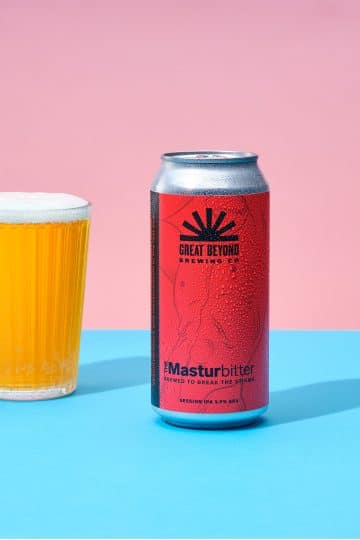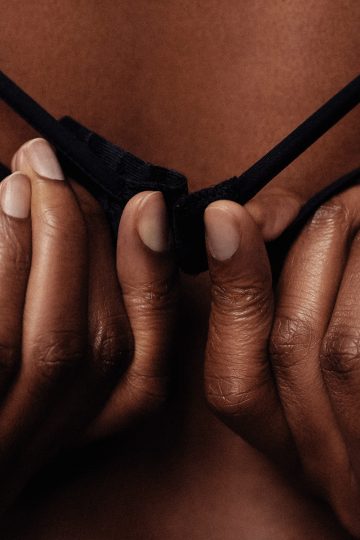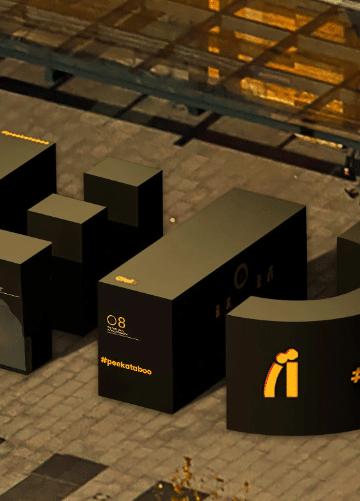What Turns You On?
Relationships
This week our sex positivity columnist questions notions of high and low libido, and asks why we as a culture value wanting sex over liking sex.
I love sex. I really love sex. But when I happen not to be sleeping with anyone I’m not that bothered about actively going in search of it. For someone who can get really turned on, it takes a lot to turn me on. I always found that slightly curious.
After all, legend says real sexual desire shall frequently erupt – unannounced – like a fiery volcano. Real, hot, passionate desire shall immediately eclipse all other rational thoughts. If you really liked and wanted sex, should not this spontaneous, uncontrollable torrent of flaming desire take over regardless of location, situation, or relationship status?
This, so we’re told, is what makes you an innately insatiable, sexual person. In a world that equates sexual prowess with power and social position, we’re supposed to be hungry for sex at every opportunity. Eternally turned on.
I can’t say I’ve ever seen a stranger in a bar and been so overcome with desire that I simply must announce my request to be sexually satisfied. But I would take serious issue with anyone telling me that must mean I don’t really love sex when it does happen.
Perhaps, then, we need to re-write the libido lore. Because as it turns out, being turned on manifests differently in different people. (I know, it’s like we’re not all one homogenous group or something. Groundbreaking discovery.)
Spontaneous desire is what we assume all people should experience. Of course, some do. It often appears out of the blue regardless of context. You might desire sex frequently. You might feel you’re always the one initiating sex because you’re the first one to want it, and you seem to want it all the time. As a result of all this you might consider yourself to have a ‘high’ libido.
If those with spontaneous desire are a constant raging fire, those with responsive desire have very few embers as they go about their everyday life. Responsive desire emerges in response to an already erotic context. (Whatever an erotic context means to the individual). Only once sexy time things begin to happen will their kindling catch alight.
So, for those with responsive desire it might feel as though you ‘want’ sex less frequently. That you therefore have a ‘lower’ libido because you don’t think about it a huge amount.
Maybe… you just don’t like sex that much?! But hang on …once you are touched and turned on, well, ain’t no stopping you.
I’ve spoken to so many people with responsive desire who, because we celebrate ‘high’ libidos, have assumed their sexuality and body to be broken. People who’ve felt that regardless of how much they enjoy the sex they are having, it must mean very little if they’re not the one who got turned on first. Am I not meant to be experiencing an undeniable urge every hour on the hour?
These people may well seek medical help. I’m not turned on in the right way. I’m abnormal, dysfunctional. But the problem isn’t medical, it’s cultural.
Because here’s the thing: wanting and liking sex are two separate things. Culturally, we’ve given more weight to the former. That’s why we have little blue pills that work with an understanding of healthy sexual function as wanting and being ready for sex. But as sex therapist Dr Christine Hyde points out: if you’re not having fun at the party, will a drug that increases your desire to go to the party solve your problem? Will it guarantee you enjoy yourself once you get there?
When did we start valuing outwardly appearing to want sex over a genuinely pleasurable experience?
Spontaneous and responsive desire are both perfectly healthy and normal ways of experiencing sex. Problems often arise in relationships not necessarily because of differing desire models, but because of a lack of understanding of exactly how the other person gets turned on.
Here’s another yarn society spins: sex is a drive. High or low. You’re born either a sleek Ferrari, ferociously intent on reaching your destination (sex, obvs) with potent disregard for any obstacles, or you’re stuck at the mechanic’s, not particularly bothered about whether your old banger gets back on the road or not.
Boring. Binary. Not True.
At any given moment there are myriad factors informing how turned on you – as an individual, regardless of gender, sexual orientation, or relationship status – are. Desire isn’t a drive, but a combination of sexual accelerators and brakes.
So, what turns you on? Seeing the naked curve of an inner thigh? The sound of crisp wine being poured? An old photo of that 90s actress you had a schoolkid crush on? Oak trees because they remind you of the time you did it up against one? These are the things you’re probably most familiar with. These are your turn ons – your sexual accelerators.
What about your brakes? These are all the things your brain sees as reasons not to feel aroused right now. They could be practical reasons like needing to finish work before a deadline, not being able to relax while the washing up is spilling out of the sink, or being anxious that someone else is in the house at the same time. It could be that you’re feeling low about your body, that new medication has zapped your energy, or you’re hideously drunk on supermarket own-brand vodka.
Conventional wisdom brashly proclaims that if you’re not wanting or liking sex, you should try chucking a load of stuff on the gas pedal. Beautiful but wildly uncomfortable underwear! Acrobatic positions that may well tear your ligaments! Play a plumber in an Oscar-worthy role play! Hmm, still not heavy enough on the gas pedal? Weird. Buy that dildo that scares the shite out of you, that’s weighty enough to do the job!!!
I failed my driving test the first three times, but even I know it’s no good putting more pressure on the gas if your foot’s slammed on the brakes.
What turns you on isn’t just a case of what turns you on. It’s a delicate balance of how many of your ons are on, and how many of your offs are off. Some people have more sensitive accelerators, so even if a couple of brakes are on, one big accelerator is enough to fire them up. Others need every single one of their brakes to be off before they can even begin to think about going in search of a match.
Before grumbling at your partner for not being turned on in the same moment as you, or feeling guilty for not being as up for it as they are right now, take the time to learn their ons and offs. Communicate yours. Exercise empathy.
If you’re raring to go but you know your partner needs their brakes turned off first, for the love of God just help them with the bloody laundry rather than snapping at them for rejecting your advances. The former’s more likely to get you sex.
Let this be an ongoing conversation throughout your life – both with your partner and yourself. Your brakes and accelerators will change over time. 10 years ago when your partner used to kiss your neck you were putty in their hands; a light touch on the accelerator and you were away. Now, that move is still a massive turn on, but there’s so much more crap hitting the brakes – mortgage repayments, caring for parents, packing lunchboxes. Tend to those needs before you start frantically Googling and self-diagnosing a ‘lack of libido’.
So, why is it that I really love sex, but when I happen not to be sleeping with anyone I’m not that bothered about actively going in search of it? I experience responsive desire. Why do I then get massively turned on when I am in the mood? Because I have very sensitive accelerators and I don’t have many brakes to turn off.
That’s my personal setup. Just because you get turned on in one way, it doesn’t mean your partner will too. Neither of you is right or wrong. Don’t shame them for their differences. Accept your own needs. And stop just waiting to be horny! Take control of turning your ons on and your offs off so that you can get on with having the sex you like.
You can hear Anouszka talk more about turn ons on her Desire and Libido episode of podcast Project Pleasure.

Read Anouszka First
Sign up to our daily newsletter to read all of our columnists before anyone else, plus the best of The Book of Man.


















